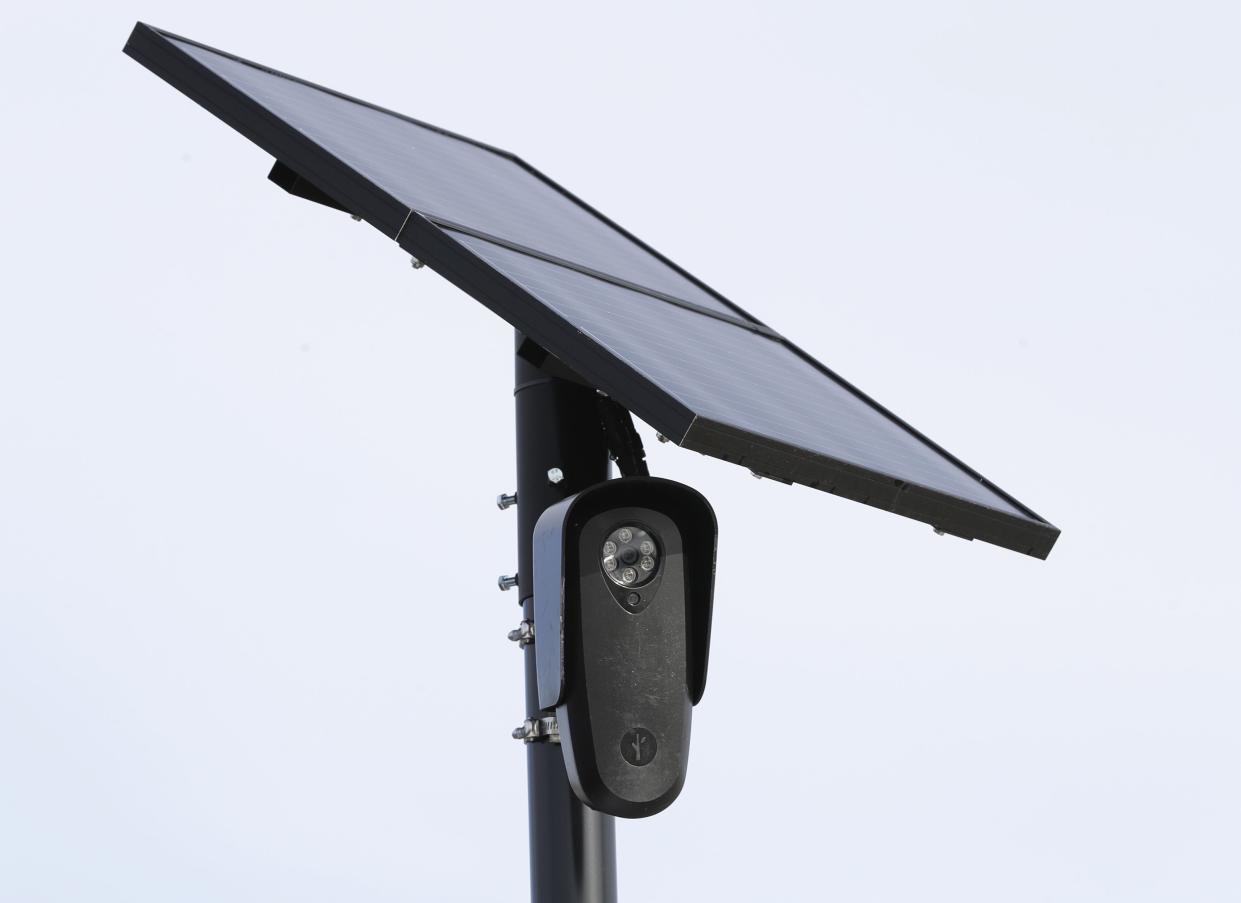California police warned not to share license plate location data with out-of-state cops

- Oops!Something went wrong.Please try again later.
California Attorney General Rob Bonta advised law-enforcement agencies not to share data on drivers' locations collected by automated license plate readers with federal or out-of-state departments, something the Riverside County Sheriff's Department and other police in the county had done in the past.
Criminal justice and privacy advocates had for years argued that sharing driver data across state lines was not permitted by the law, but dozens of departments continued to do so. The practice, now, has been restricted by the California Department of Justice.
Bonta issued a legal memo in late October about a 2016 law that outlines various aspects of how police can or can't share the images and data they collect with automated license plate readers (ALPRs).
Much of the memo, which was written by Bonta's Division of Law Enforcement Chief John Marsh, concerned basic policies and practices to ensure police are being both transparent and secure with their ALPR use. The memo's definition of a foundational concept in the law, however, provided a definitive answer in the ongoing public debate.
"Importantly, the definition of 'public agency' is limited to state or local agencies, including law enforcement agencies, and does not include out-of-state or federal law enforcement agencies," Marsh wrote.
SB 34 outlines several restrictions on how departments can share ALPR data. They can't sell it or share it with private entities, for example. But they can share it with other public agencies. For years, many police departments interpreted that to mean they could share their ALPR data with police in other states. in Riverside County, the sheriff's department as well as city police in Beaumont, Desert Hot Springs, Hemet, Menifee, Murrieta and Palm Springs all had done so, according to department records.
The memo puts an end to that practice, while maintaining the ability to share with other police departments in California. It's a clarification many criminal justice and data privacy advocates applauded.
"Victory! California Attorney General Rob Bonta has confirmed what we've been saying for years: It is against the law for California law enforcement agencies to share data collected from automated license plate readers with out-of-state or federal agencies. This guidance will protect abortion seekers, immigrants, and indeed anyone who drives a car in the Golden State from abusive surveillance,” said Electronic Frontier Foundation Director of Investigations Dave Maass.
Through public records requests sent to departments throughout the state, EFF and the ACLU of Southern California showed that police were widely sharing ALPR data across state lines and with federal agencies.
The ACLU and EFF effort to block such sharing gained urgency after Roe v. Wade was overturned last year. ALPR data, they argued, could be used in the prosecution of abortion seekers traveling to California from jurisdictions where it had been criminalized.
Many departments did not respond to the advocacy groups when they asked them to heed the law and stop such sharing. The Palm Springs Police Department, however, did, saying in June that legal representatives advised against continuing to. That city council agreed to install 15 more cameras last month.
The Riverside County Sheriff's Department operates the largest network of ALPRs in the county, threading together cameras in cities where it's contracted to provide police services, like Rancho Mirage and Palm Desert, with ones it operates in unincorporated land out of its various stations. The Coachella City Council in August rejected an effort by the sheriff's department to install about 70 cameras in its city, in part over privacy concerns related to what the data will be used for.
The sheriff's department has shared ALPR data of motorists in the county with a broad range of police from distant jurisdictions, such as Ohio, Indiana, Georgia, Alabama and Florida. When questioned by The Desert Sun about its sharing practices, Lt. Randy Vasquez said in August that the department stopped such sharing earlier this year, but did not say exactly when. He added that they stopped sharing out-of-state because "there was no significant investigative benefit" to doing so.
Christopher Damien covers public safety and the criminal justice system. He can be reached at christopher.damien@desertsun.com or follow him at @chris_a_damien.
This article originally appeared on Palm Springs Desert Sun: California police warned about sharing of license plate reader data

